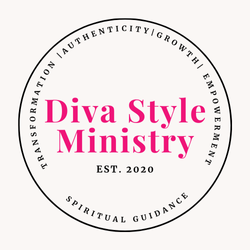Introduction to Personal Freedom
Personal freedom is our inherent right—one that we don’t have to earn, we possess it simply because we ARE.
It’s a fundamental liberty that gives us the right to make choices about our lives, from the people we associate with to the paths we pursue. This liberty is the essence of what it means to be free, a concept fought for tirelessly by our ancestors and forbearers. Yet, despite its significance, many people find this freedom elusive, hidden by our learned behavior of putting the demands and expectations of others ahead of our own. Understanding and claiming this freedom is very important for living a life that is truly your own, unaffected by the influences of others and unrestricted by unfair, imposed limitations – a personally authentic life.
The Value of Personal Freedom
Freedom is the cornerstone of self-expression and personal development. It allows us to live a life and make choices that reflect our true selves rather than conforming to external pressures. This freedom is critical because it directly influences our happiness and fulfillment.
Without it, we can end up feeling trapped in a life we wouldn’t have chosen for ourselves. This could lead to dissatisfaction and significant life changes like abrupt career shifts or relationship breakdowns. How many stories have we heard and seen about people who made seemingly “crazy” shifts in their professions, leaving behind years of education and experience to pursue a field that’s totally unrelated to their original path? Changes like this can be the end result of the person affected finally tapping in to their authetic desires and shaking off the path that someone else chose for them.
The journey toward personal freedom is therefore not just about achieving independence, but also about cultivating a deep sense of self-worth and personal integrity.
Obstacles to Personal Freedom
The path to personal freedom is full of barriers. These barriers can be external, such as societal norms, family expectations, the need for advanced (expensive) education, or internal, like self-doubt, fear of rejection, or an inability to see or understand what your heart’s true desire is.
The weight of these expectations can feel oppressive, like chains weighing us down and holding us back from pursuing our true desires. The fear of stepping outside societal norms can prevent individuals from expressing their true identities, leading to a life of conformity and unhappiness.
Overcoming these barriers requires courage, resilience, and a steadfast commitment to self-discovery.
Navigating Through Challenges
Recognizing and understanding these obstacles is a required skill if you’re going to overcoming them. It involves being willing to dig deeply into your heart and mind as you work to confront the factors that limit your freedom. Staying on the surface and dealing only with external factors will only get you so far down the road toward your ultimate goal. It’s not an overnight process, nor is it guaranteed to be easy.
This process can be uncomfortable – deeply so – but is absolutely essential for growth and self-liberation. Fighting your way through the discomfort and the fear of leaving behind the “known” quantity, even when you can feel in your heart of hearts that’s it’s not RIGHT FOR YOU will push your internal strength to it’s limits.
You’ll also need a supportive environment where you can explore and express your true selves without fear of judgment or retaliation. We perfectly imperfect human beings lay enough doubt, guilt, and negative on ourselves without “help” from friends, family or our loved ones. It’s harder to tune out the negative and decide to keep moving forward when it seems that no one, including yourself, believes that you can do it.
Three Steps to Personal Freedom
To achieve personal freedom, you must be deeply intentional and consistently proactive. Here’s a detailed approach to reclaiming your independence and authenticity:
- Identify Your Personal Desires: Begin by defining – in detail – what truly matters to you, including your passions, goals, and values. Write these down – your personal journal is great for this – and revisit them regularly to remind yourself of your true priorities. This helps in making decisions that align with your personal vision, rather than being swayed by others’ expectations.
- Own Your Desires and Needs: It’s crucial to not only identify but also fully embrace your desires. Keep them close and don’t talk yourself out of pursuing them. Make them a part of your daily activities – use affirmations to encourage the mindset shifts and emotional changes that will be required for you to achieve them. This step involves building self-confidence and self-worth to stand firm against external pressures, because when you practice daily positive affirmations, you reinforce your belief in your right to make personal choices.
- Challenge Limiting Beliefs: The journey to freedom is often non-linear, and filled with curves and setbacks. You can choose to see each challenge you face as an opportunity to learn and grow instead of only seeing it as an obstacle. Adopting a flexible, but persistent mindset allows you to overcome those obstacles and adapt to changes along your path to freedom. Remember and document how you got over and around the obstacles to reinforce your faith in yourself and your abilities, and to serve as a manual for repeating the actions in the future when needed.
Sustaining Freedom
Maintaining personal freedom requires continuous effort. It’s not like a fixed-length project that has a defined start and end date and a stable list of materials and tools needed to achieve it.
It involves being mindful of new barriers that may arise and having the resilience to address them – without delaying dealing with them until they are entrenched and unwilling to be moved. Catch the barrier when it’s small or isn’t quite set in it’s foundation, and you’ll find it easier to knock over, prevent it’s growth, or even destroy it all together.
This ongoing process is vital for personal growth and ensures that your freedom is always evolving. As you succeed and keep moving forward, you’ll find it easier to stay on your path and keep your freedom safe. You’ll build more faith in yourself and enjoy your new situation so much, you’ll refuse to return to the old “status quo” because it no longer serves the person you’ve become.
Empowering Yourself and Others
As you work on your own freedom, you become a beacon of inspiration for others. They will watch you overcome obstacles – perhaps some that they’ve faced – and your perseverance will help to convince them that not only can they overcome the obstacle, but they can acquire or activate the skills needed.
Sharing your journey can empower those around you to seek their own paths to freedom, creating a supportive community that values individual expression. Sometimes it only takes seeing ONE person doing something different to make many others realize they have that option too. When you notice other people watching you, it may also give YOU a boost – especially if they are cheering you on!
Expanding the Impact of Personal Freedom
Personal freedom not only enhances individual lives but also enriches our communities. Setting an example for others to follow not only helps them see what’s possible, but helps you to see what achieving your freedom has done for YOU.
When we build and support an environment that respects and encourages personal freedom, we cultivate a society that thrives on diversity and innovation – because not every member of the society will tackle problems in the same way or at the same time.
Encouraging personal freedom in others starts with understanding and compassion—recognizing that everyone’s path to freedom is unique. You can be the spark that lights the fire of personal freedom in the hearts and minds of those who are watching and learning from you.
Conclusion
Embracing and advocating for personal freedom is essential for both individual fulfillment and societal progress.
It requires an ongoing commitment to challenging the status quo and advocating for the rights and freedoms of yourself and others. Through a deepened understanding and proactive approach, personal freedom becomes a powerful force for change and a cornerstone of a thriving, vibrant community.
Enhance Your Self-Development Journey with our SoulScript Chronicles Monthly Membership!
Listen to a brief audio excerpt, explore this week’s topic, and get inspired with two powerful journal posts and affirmations to empower your mindset.
Sample Journal Prompts
Prompt 1: In what ways can I practice patience as I work toward greater personal freedom?
Prompt 2: How does my environment influence my personal freedom, and what changes might I consider to support my growth?
Sample Affirmations
- I am free from the need for external approval, embracing my true self.
- Each step I take is a progression towards a freer, more empowered me.
For full access to our comprehensive weekly audio guides, additional journal prompts, and powerful affirmations, join SoulScript Chronicles today!





